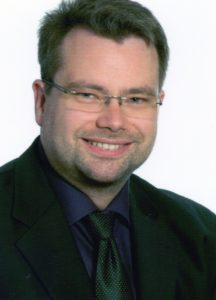
Dr. Christian Krekeler
Host beneficiary: Freie Universität Berlin, Department for Mathematics and Informatics, Germany
Industrial partner: MODAL AG, Germany
Description
Grand Canonical Adaptive Resolution Scheme (GC-AdResS) is getting more recognition throughout the scientific community. The main aspect is to couple two simulation boxes together and combine the advantages of classical atomistic simulations with those from coarse gained simulations. The goal of the pilot project is to develop a library or recipe with which GC-AdResS can be implemented in any MD Code. Our current focus is adjusting the implemented Version of GC-AdResS in GROMACS. The long-term goal of this project is to promote and stimulate the community to use it as a tool for multiscale simulations and Analysis.
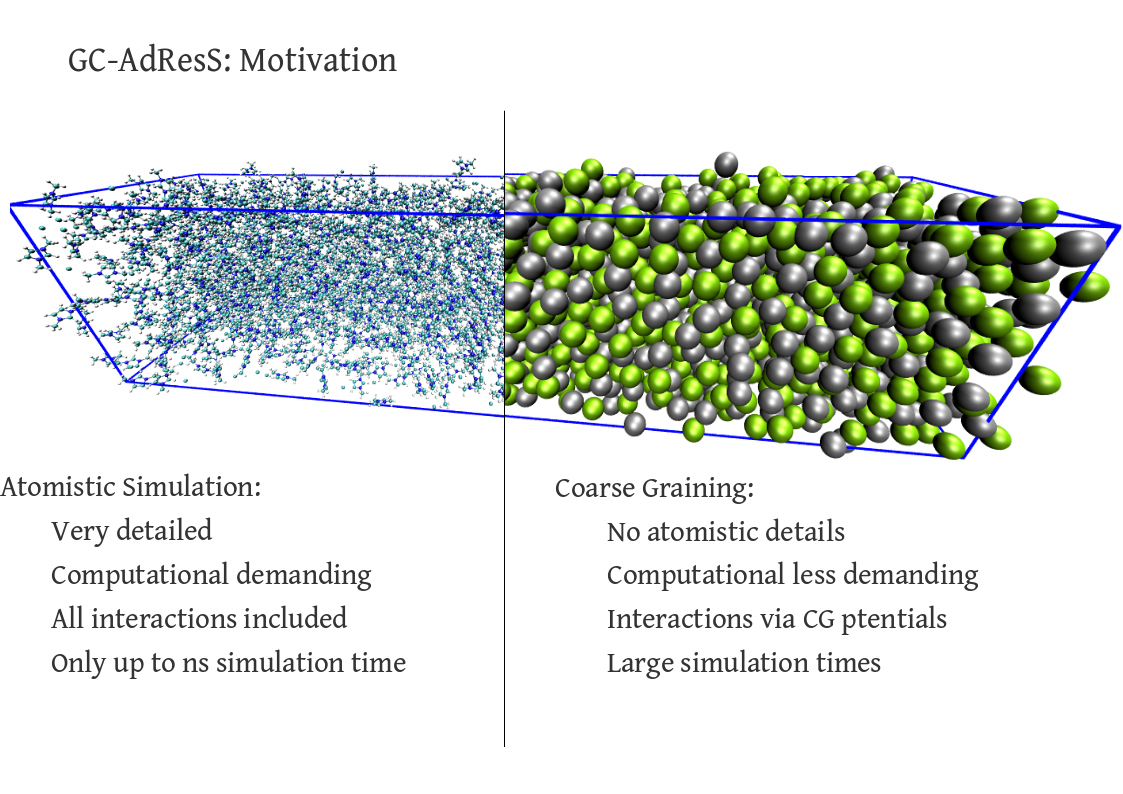
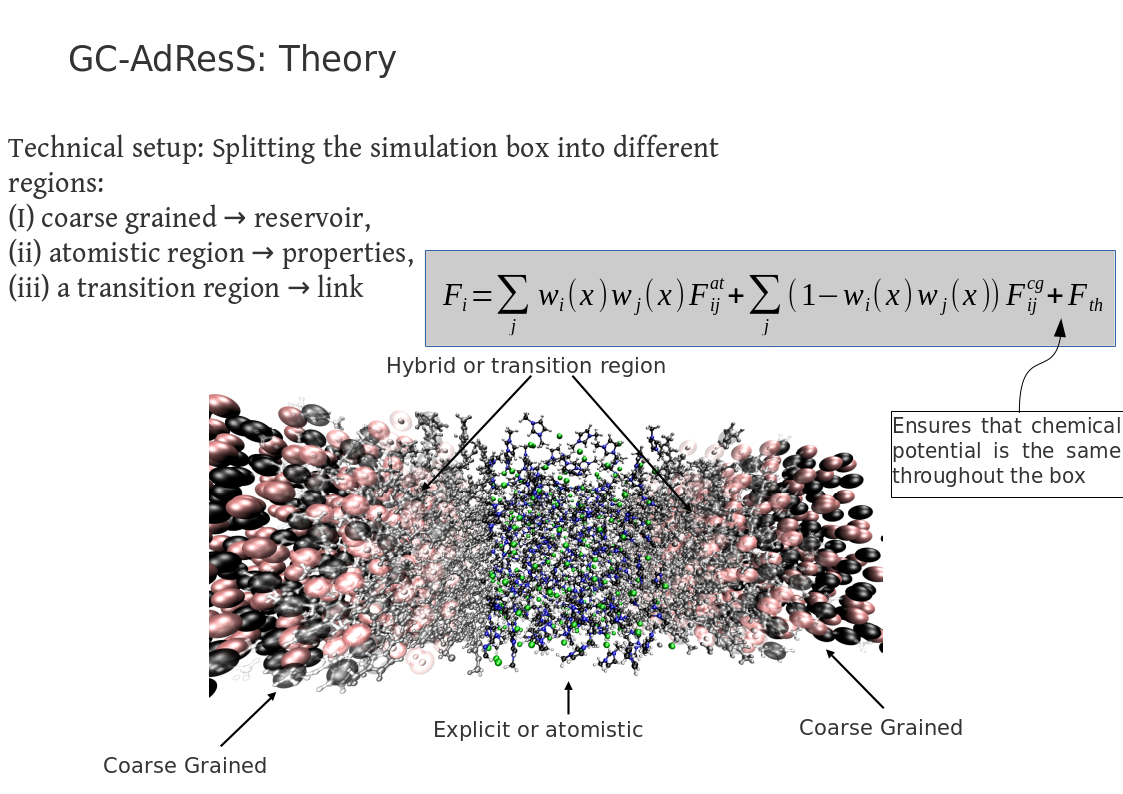
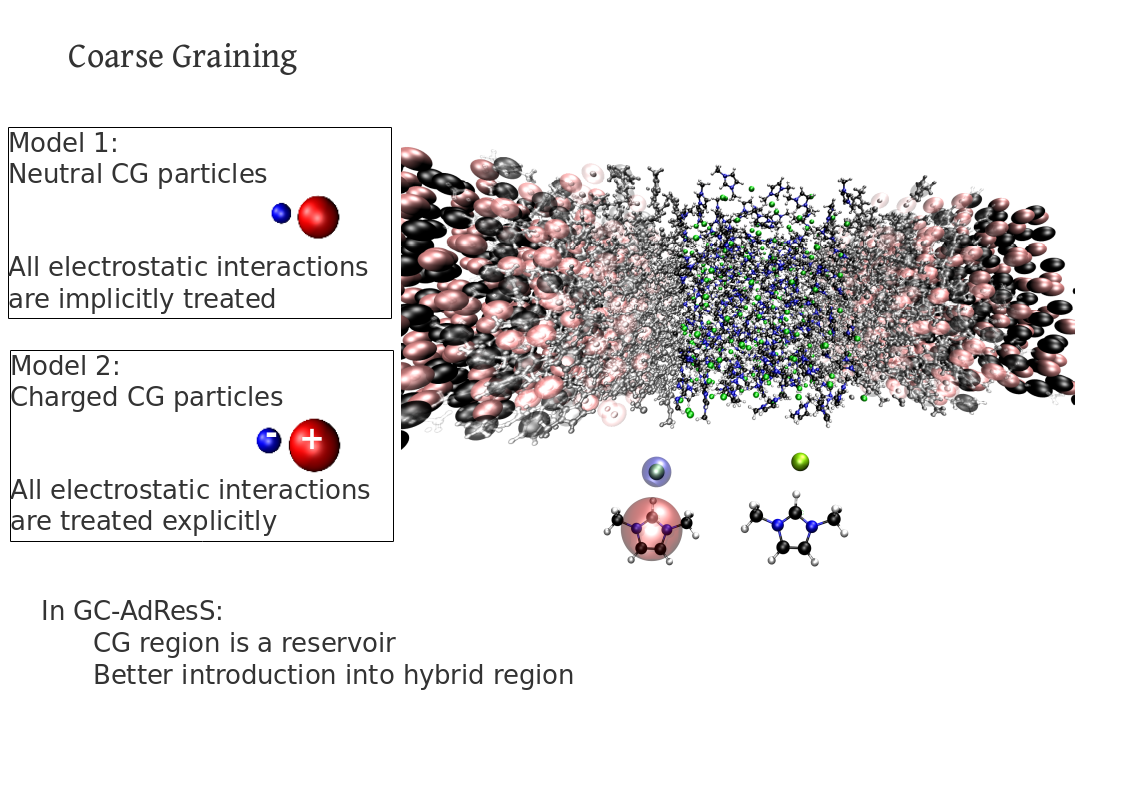
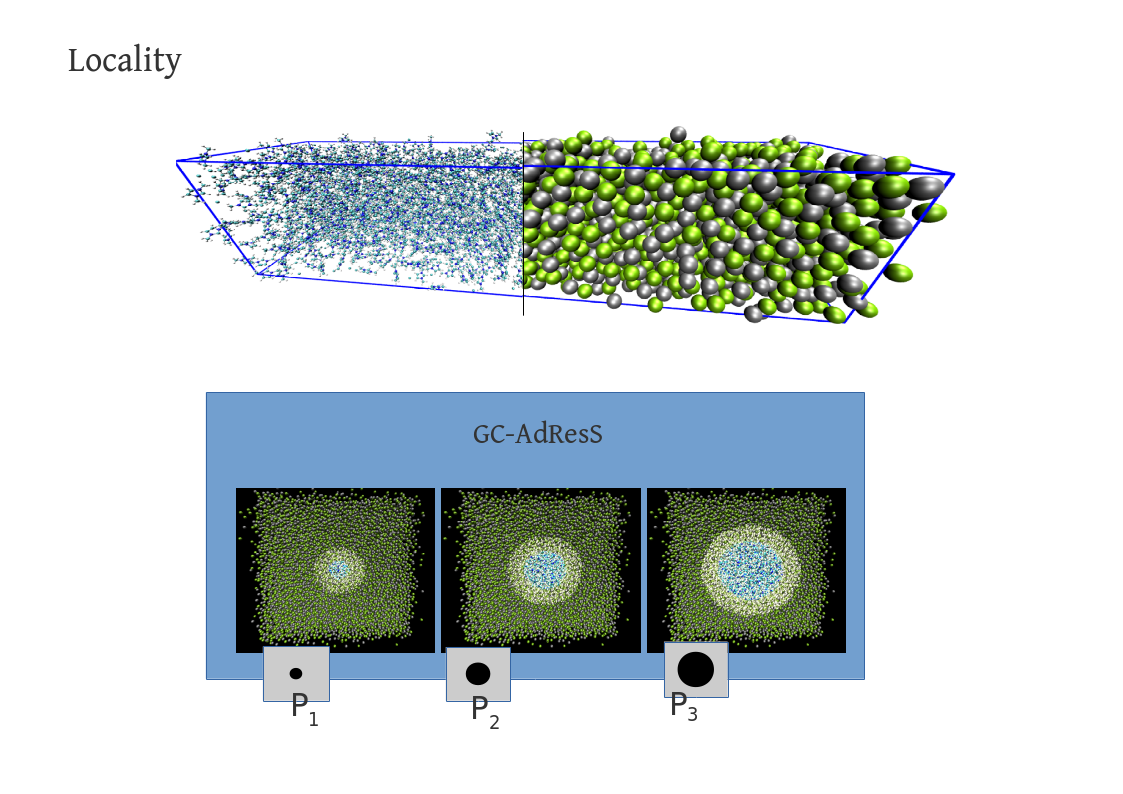
Development Plan
List of Tasks
- Set up a new scheme in GROMACS (in the Moment Version 5.1.0) and adjust the Fallout in the form of adjusting the thermodynamic force interpolation
- Set up a new scheme in ESPRESSO++ in cooperation with the Developers in Mainz
- And finally generalizing those schemes
List of Modules
- Abrupt GC-AdResS: A new and more general implementation
- Radial Distribution Functions for GC-AdResS
- Abrupt-AdResS: Forcecap
- Thermodynamic Force Calculator for Abrupt AdResS
- Local thermostat adaption of the Abrupt GC-AdResS scheme
- Tools for AdResS
- Velocity-Velocity autocorrelation function for AdResS
- Dipole-Dipole autocorrelation function for AdResS
- Energy (AT)/Energy(interface) ratio: Necessary condition for AdResS simulations
Published Results
List of publications:
Luigi Delle Site, Christian Krekeler, John Whittaker, Animesh Agarwal, Rupert Klein, Felix Höfling, "Molecular Dynamics of Open Systems: Construction of a Mean‐Field Particle Reservoir", Adv. Theory Simul. 2019, 1900014
DOI: 10.1002/adts.201900014 (Open access)
Christian Krekeler, Animesh Agarwal, Christoph Junghans, Matej Praprotnik, and Luigi Delle Site, "Adaptive resolution molecular dynamics technique: Down to the essential", J. Chem. Phys. 2018, 149, 024104
DOI: 10.1063/1.5031206
Open access version
B. Shadrack Jabes, C. Krekeler, R. Klein, L. Delle Site, "Probing Spatial Locality in Ionic Liquids with the Grand Canonical Adaptive Resolution Molecular Dynamics Technique",J. Chem. Phys.148, 193804 (2018)
DOI: 10.1063/1.5009066
Open access version
Luigi Delle Site, "Grand Canonical Adaptive Resolution Simulation for Molecules with Electrons: A Theoretical Framework based on Physical Consistency " , Computer Physics Communications 222(2018), 94–101
http://arxiv.org/abs/1709.08452
Luigi Delle Site, Giovanni Ciccotti and Carsten Hartmann, "Partitioning a macroscopic system into independent subsystems " , J. Stat. Mech. Theor. Exp. 083201 (2017)
Open Access
Luigi Delle Site and Matej Praprotnik, "Molecular systems with open boundaries: Theory and Simulation " , Physics Reports 693, 1-56 (2017)
Open access
Animesh Agarwal, Cecilia Clementi and Luigi Delle Site, "Path Integral-GC-AdResS simulation of a large hydrophobic solute in water: A tool to investigate the interplay between local microscopic structures and quantum delocalization of atoms in space " , Phys.Chem.Chem.Phys. 19,13030-13037 (2017)
C7CP01629H
Christoph Junghans, Animesh Agarwal and Luigi Delle Site, "Computational Efficiency and Amdahl's law for the Adaptive Resolution Simulation Technique " , Computer Physics Communications, 215, 20 (2017)
cpc.2017.01.030
Christian Krekeler and Luigi Delle Site, "Towards Open Boundary Molecular Dynamics Simulation of Ionic Liquids " , Phys.Chem.Chem.Phys 19, 4701 (2017)
DOI: 10.1039/C6CP07489H
Open access version
Outreach Material
Recent Posts

E-CAM Case Study: The development of the GC-AdResS scheme:

Abrupt GC-AdResS: A new and more general implementation of the Grand Canonical Adaptive Resolution Scheme (GC-AdResS)

E-CAM related work labeled as “Excellent Science” by the EC Innovation Radar Initiative

New E-CAM publication is out: “Molecular Dynamics of Open Systems: Construction of a Mean‐Field Particle Reservoir”

New publication is out: “Adaptive Resolution Molecular Dynamics Technique: Down to the Essential”
